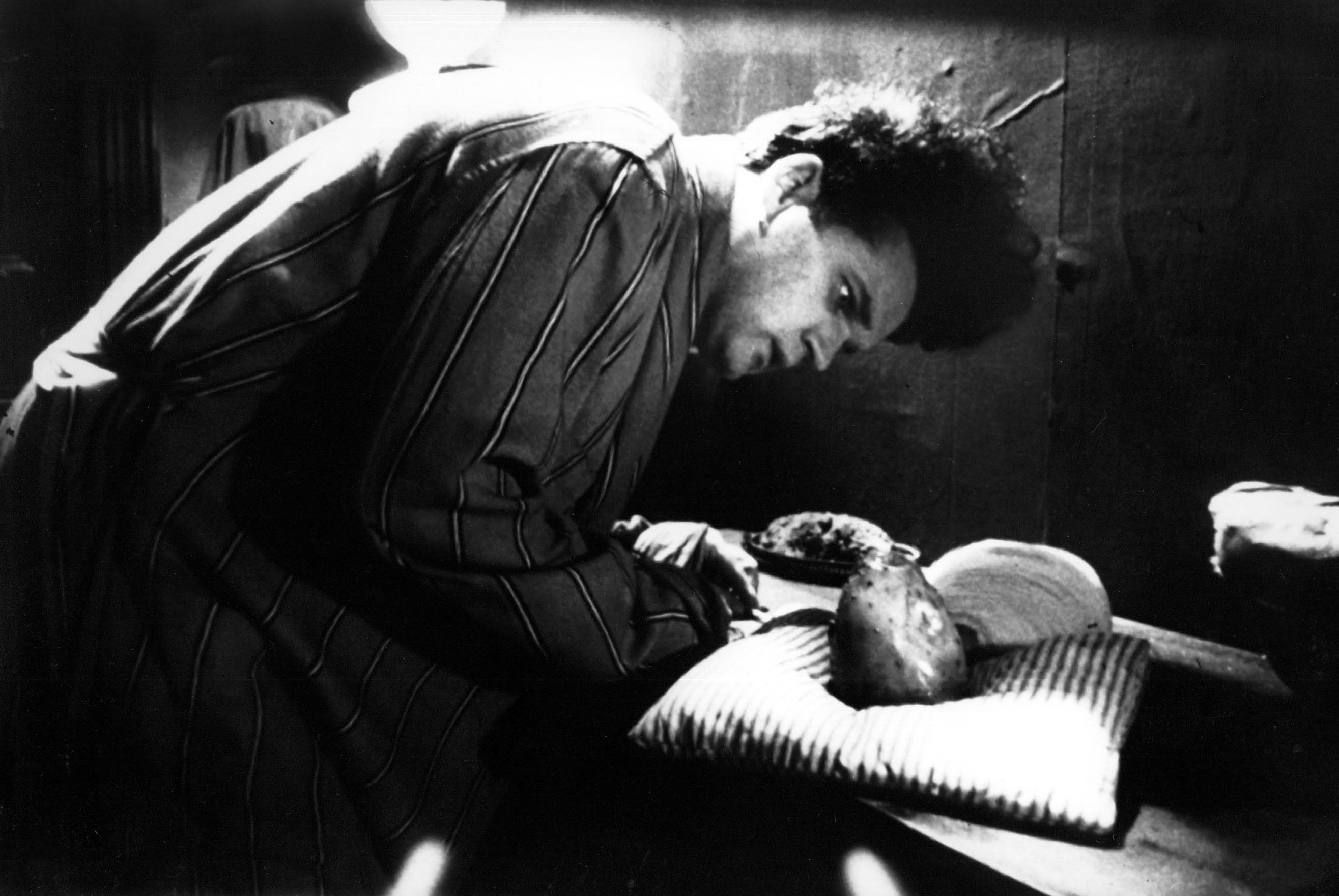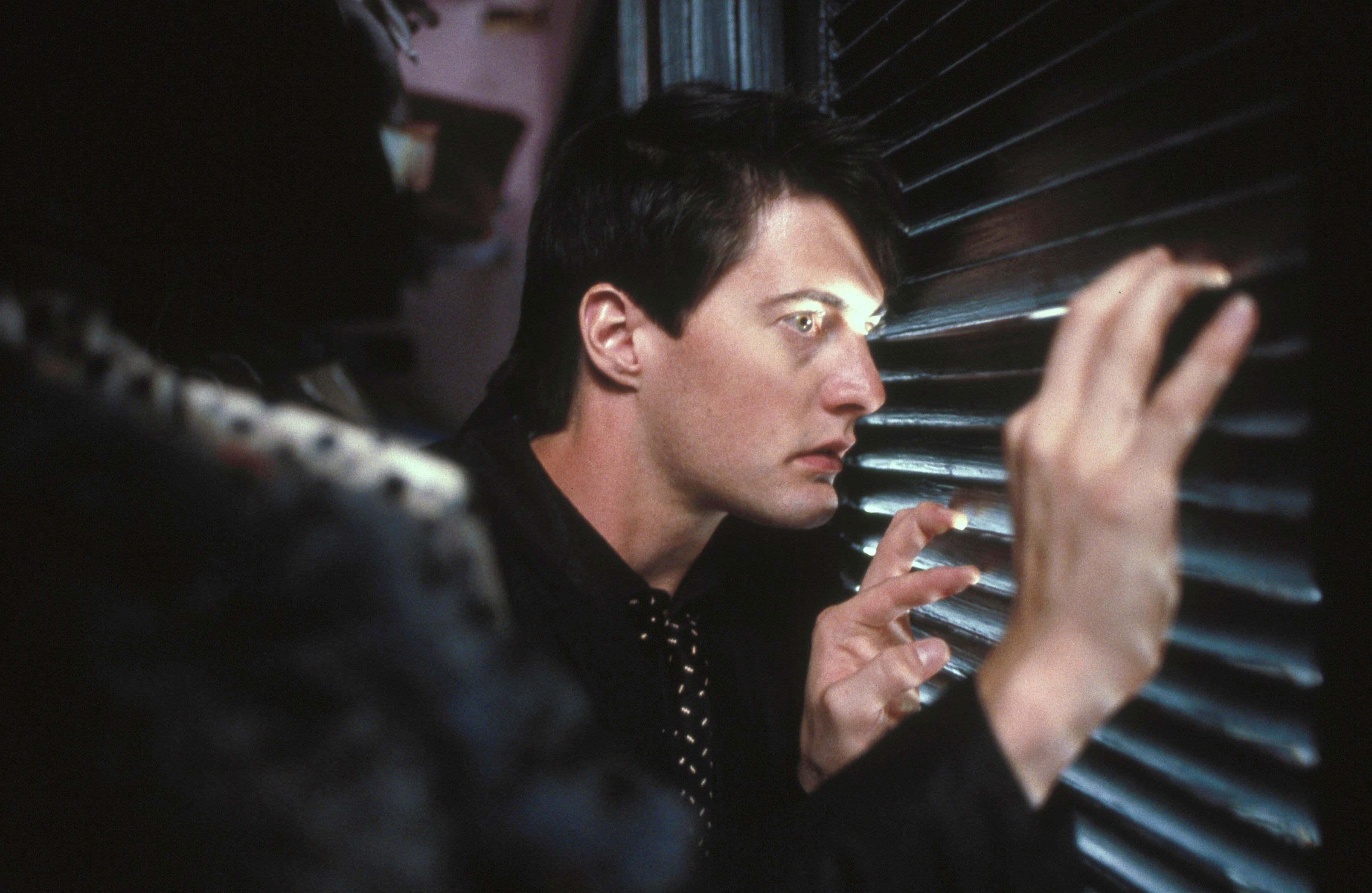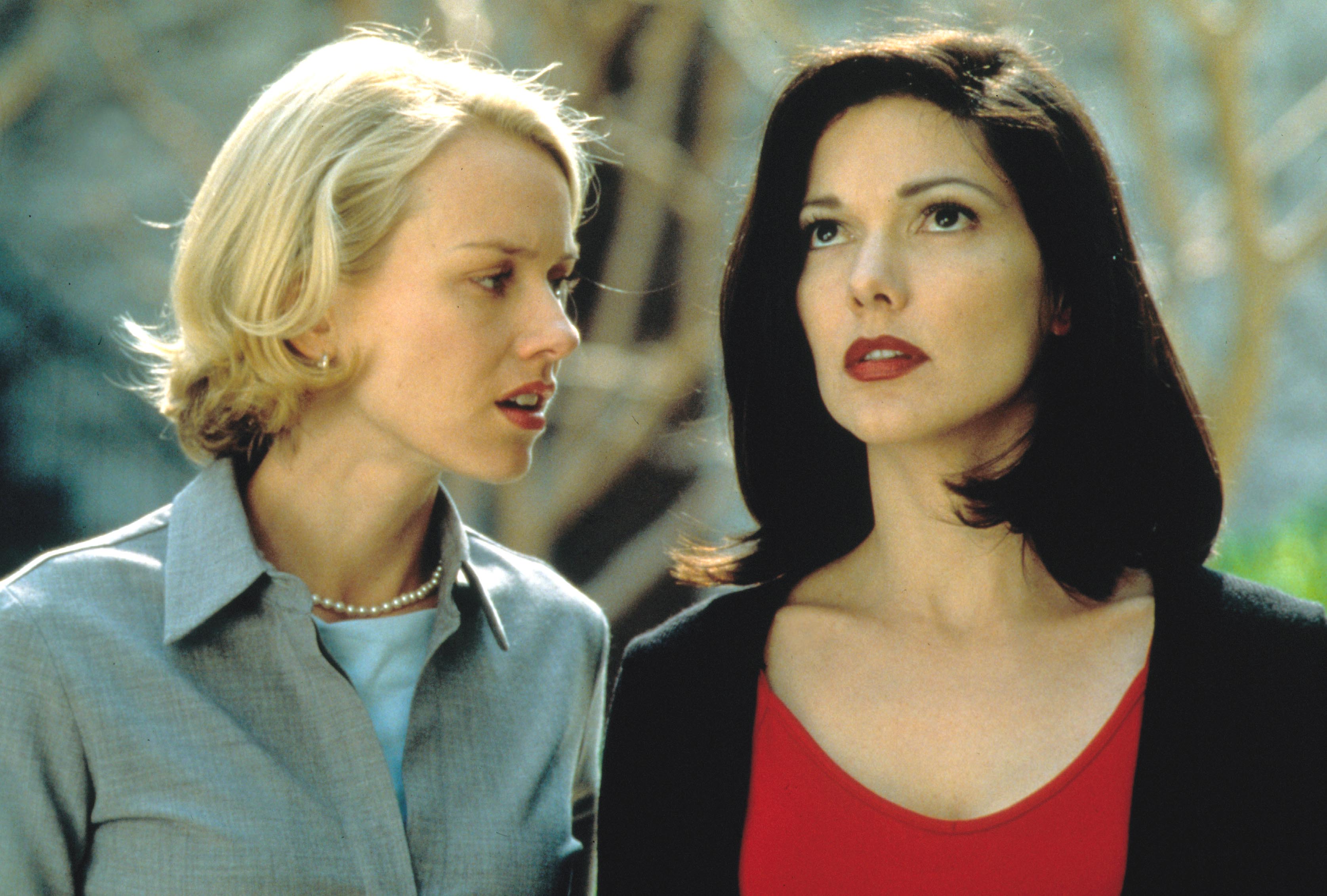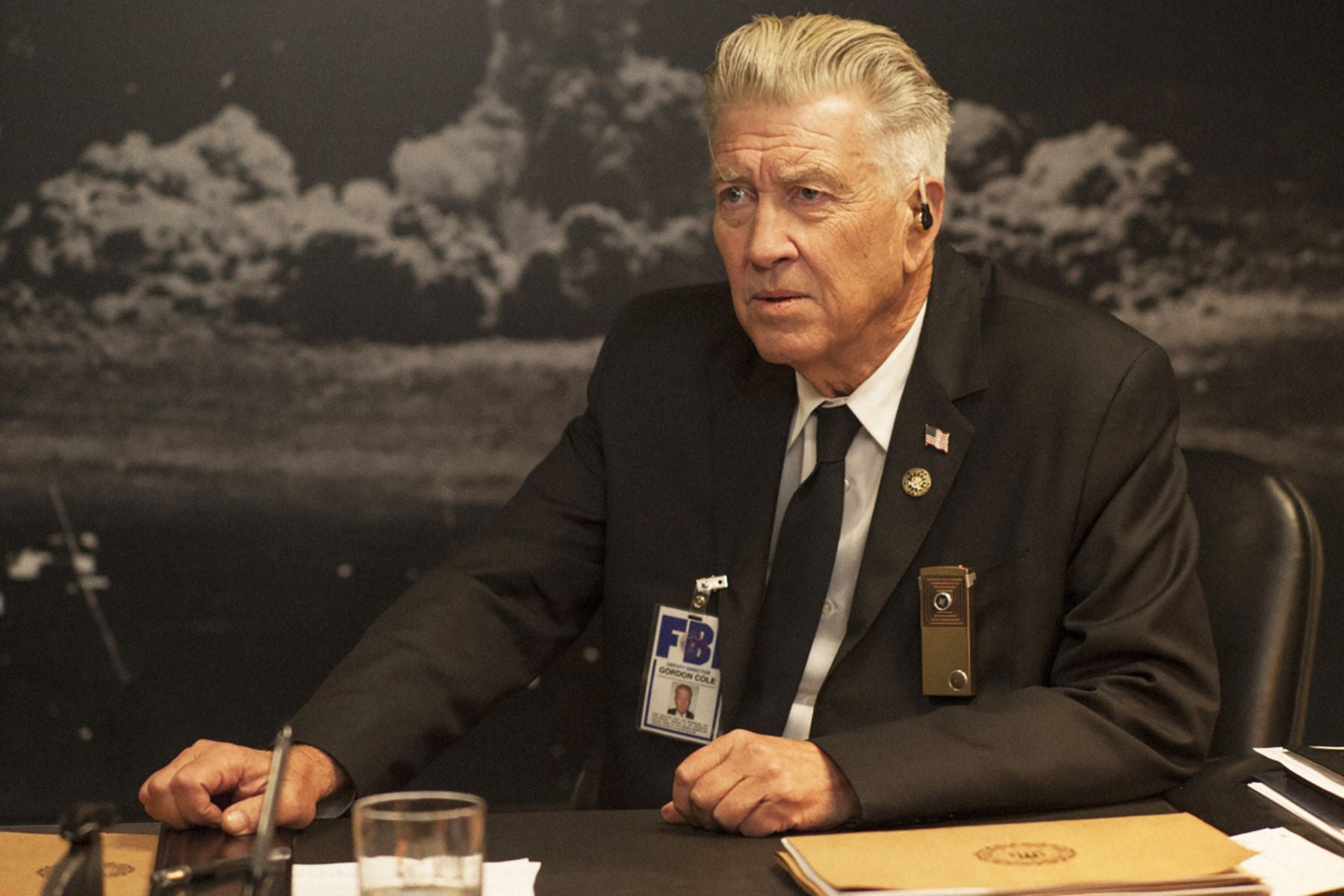Words feel inadequate when it comes to David Lynch. They feel particularly so now, in the wake of his death at the age of 78, months after the visionary American filmmaker announced he had been diagnosed with emphysema.
How do you articulate such a loss – to cinema, to art, to the world? It feels like we cannot. But the truth is, Lynch has always seemed to operate in a realm beyond articulation – from his very first feature-length film, Eraserhead (1977), through to later masterpieces Blue Velvet (1986) and Mulholland Drive (2001), or Twin Peaks (1991-92; 2016), the show that revolutionised television two times over. Nouns, verbs and adjectives can only skirt the edge of Lynch’s strange, disorienting shadowplay, as if around the perimeter of a black hole. Veer too close, and everything gets lost in the great dark maw of it.
Of course, that has never stopped people from trying to find the right phraseology. It was only partway through his career that the term “Lynchian” was coined – a word many deploy, and far fewer are able to aptly define. It may be that Lynch’s work is just too hard to pin down: it brought together melodrama and noir, soul-shaking horror and head-scratching surrealism, increasingly casting aside conventional notions of narrative in favour of something foreign and elliptical.
In his seminal article on Lynch, written around the production of Lost Highway (1997), the late David Foster Wallace wrote that the term “Lynchian” might be academically defined as “a particular kind of irony where the very macabre and the very mundane combine in such a way as to reveal the former’s perpetual containment within the latter”, but that it was “ultimately definable only ostensively – ie, we know it when we see it”.
This symbiotic contrast – prosaic, picket-fenced normality colliding with visceral distress – was realised most overtly in Blue Velvet, which layered pleasant American suburbia atop an underworld of violence, mania, and sexual depravity. But it was a contrast embodied also by Lynch himself, whose mind gave birth to some of the most upsetting sequences in cinema, but who conducted himself like a character from a 1950s milkshake commercial. Lynch refrained from swearing, and spoke using words such as “golly” and “peachy”; for years, official press releases would describe him simply as: “Eagle Scout, Missoula, Montana” (the town he lived in as an infant).
Lynch was a singular eccentric; to many of those who followed his life and work with fervid adulation, the snippets of his bizarre offscreen behaviour only added to the mystique.
There was the time he attempted to lobby for Laura Dern’s performance in Inland Empire (2006) to get an Oscar nomination, by sitting with a live cow by the side of Hollywood Boulevard. And his habit of eating the exact same meal for months on end, to better focus on his art. And the time he rescued five large Woody Woodpecker dolls from a petrol station. (“I named them Chucko, Buster, Pete, Bob and Dan and they were my boys and they were in my office,” he said. “They were my dear friends for a while but certain traits started coming out and they became not so nice... They are not in my life any more.”)
Isabella Rossellini, who starred in Blue Velvet and dated Lynch for several years in the late 1980s, once wrote of him: “I suspect he lingers in other dimensions.”
To some extent, the films are their own explanation. Lynch has sometimes been miscategorised as a cold or ironically removed filmmaker; in truth, he’s been laying his own psyche bare since the very start of his career, and the surreal, self-produced Eraserhead. Filmed over half a decade, with Lynch returning to the production only when his personal coffers allowed, Eraserhead is, as Wallace wrote, “one of those sell-your-own-plasma-to-buy-the-film-stock masterpieces”. It’s also as personal as Lynch has ever been – despite its esoteric, symbolic story, which involves a monstrous “baby” and a singing, sperm-stomping woman who appears in Jack Nance’s radiator.
The film almost certainly sprang from his anxieties over fatherhood that came with the birth of his first child, Jennifer (shared with Peggy Reavey, the first of Lynch’s four wives). Eraserhead’s setting, meanwhile, was a sort of hellish, dreamlike reimagining of Philadelphia, the city Lynch had moved to at the age of 19.
From there, Lynch went on to make his most lauded “mainstream” film, the multi-Oscar-nominated period drama The Elephant Man (1980). (Lynch’s work would consistently prove too idiosyncratic – or simply too good – for the Academy voters, though he was nominated thrice for Best Director and was presented with an honourary award in 2019.)
Mel Brooks, one of the producers of The Elephant Man, pushed for Lynch to direct, having been ensorcelled by the alien audacity of Eraserhead. Recalling his first meeting with Lynch, Brooks said he had “expected to meet a grotesque – a fat little German with fat stains running down his chin and eating pork”, only to be wrongfooted by the sharply dressed midwestern naif who introduced himself. During the production, Lynch attempted to craft the elaborate facial prosthesis for the disfigured John Merrick (John Hurt) himself, just as he had previously contrived the hideous Eraserhead baby (from materials never disclosed). It was only at the last minute that Lynch agreed to delegate.

The Elephant Man is sometimes – dubiously – grouped alongside the G-rated bio-drama The Straight Story (1999) as an outlier in Lynch’s body of work. But really, it explored many of his usual fixations – earnest sentiment; outsiderdom; human malevolence.
Where The Elephant Man did divert – along with the director’s next film, a terribly received, high-budget adaptation of Frank Herbert’s Dune – was in its setting. The Elephant Man was set principally in London, and Dune on the fictional planet Arrakis; after this, Lynch would switch his focus back to his native America, in all its complex, symbolic glory. “I want to do movies that take place in America and that take people into worlds where they could never go,” he once said. “Give them a set of images and sounds they couldn’t have any other way. Give them journeys into the very depths of their beings.”
There is something idiosyncratically American about Blue Velvet, as with much of Lynch’s later work – Twin Peaks looks at the rot and spiritual decay of the American small town, while Mulholland Drive and Inland Empire tear open the illusory glamour of Los Angeles. Speaking about his decision to cast Dennis Hopper as Blue Velvet’s psychotic rapist villain Frank Booth, Lynch remarked: “Dennis is so American – in a bent, sick way.”

What often gets lost in the conversation surrounding Lynch’s work – thanks, largely, to his incredible consistency of vision – is just how much range he had. Sometimes this is evident: The Straight Story, for instance, showed his aptitude for straight-down-the-line drama. The film draws incredible potency from Richard Farnsworth in his role as a regret-laden WWII vet who rides across the American Midwest on a lawnmower to reconnect with his estranged brother.
That project was brought to Lynch by Mary Sweeney, his longtime editor and producer, who was briefly his wife and is the mother of one of his children. She also co-wrote the script. The accessible, sentimental film, released by Disney, was bereft of the dread and violence that Lynch typically trafficked in – and somehow was no less brilliant for it. But even within his works, Lynch proved capable of switching mercurially through different styles and tones. Twin Peaks fused soap opera with surrealism, earnestness with arch irony.
As all great directors do, Lynch surrounded himself with a network of first-rate collaborators, among them the late composer Angelo Badalamenti, who did the music for Twin Peaks and several of Lynch’s films. “I have an understanding of David and he has an understanding of me,” Badalamenti once said. “I listen to him and I start hearing things almost immediately.”
Lynch was as radical in his command of sound as he was in his use of images. This extended to his choice of music, with both his expert ear for original scores and his uncanny knack for recontextualising older works – the scene in which Blue Velvet’s Dean Stockwell lip-syncs to Roy Orbison’s “In Dreams” is among the finest and most memorable musical sequences ever put to film. Likewise the moment when Mulholland Drive’s Naomi Watts and Laura Harring watch a reality-shattering performance of “Llorando” in the spectral cabaret of “Club Silencio”. (Lynch was a musician, too, releasing albums with various collaborators, including Badalamenti.)

His stable of repeat actors was superlative, including stars such as Harry Dean Stanton, Laura Dern, and Kyle MacLachlan. The tributes to Lynch following his death have been shattering. Watts, who got her breakthrough with Mulholland Drive and later returned for Twin Peaks, recalled the moment Lynch chose her for his world: “I sat in front of a curious man, beaming with light, speaking words from another era, making me laugh and feel at ease. How did he even ‘see me’ when I was so well hidden, and l’d even lost sight of myself?!”
MacLachlan wrote his own beautiful and lengthy tribute. “I owe my entire career, and life really, to his vision,” the Twin Peaks and Blue Velvet star said. “What I saw in him was an enigmatic and intuitive man with a creative ocean bursting forth inside of him. He was in touch with something the rest of us wish we could get to.”
Lynch himself seemed doggedly uninterested in intellectualising his work outwardly. (An exception, perhaps, was when the supposedly opaque Mulholland Drive was released on DVD and the filmmaker provided 10 “clues” to help viewers understand the film – but these cryptic hints didn’t elucidate so much as mislead and frustrate.) For most of his life, Lynch was a devoted and enthusiastic practitioner of transcendental meditation, a non-religious meditation method developed by Maharishi Mahesh Yogi. Many have suggested that the pervasive dreamlike quality of Lynch’s films has its roots in this.
Towards the end of his career, Lynch struggled to get financing for the films he wanted to make. (Not that his output ever slowed: when he wasn’t making features, he was working on no-budget short films, or painting, or recording music.) Inland Empire, shot on grimy video, might be his most opaque work, a doom-laden and inscrutable film that many regard as a masterpiece.
Twin Peaks ended in 1991, after just two seasons. (The network had grown impatient and forced the show to solve its central mystery – who murdered local schoolgirl Laura Palmer? – partway into season two, after which Lynch and co-creator Mark Frost largely ceded creative influence.) When it was announced that Lynch was reviving the series, for Showtime, in 2016, with a budget of over $41m and every episode to be directed by Lynch himself, it felt like a miracle. The resulting series (Twin Peaks: The Return) may well be Lynch’s magnum opus – by turns challenging, unexpected, frustrating, funny, bewildering, and viscerally unpleasant. It was everything art should be, and unlike anything else that had ever been on television.

The Return would be the last major work of Lynch’s career, not counting his magnificent one-scene role as John Ford in Steven Spielberg’s The Fabelmans (2022). Shortly before Christmas, it was rumoured that Lynch remained in good spirits despite his declining health and was spending much of his time – in a typical groove of Lynchian eccentricity – watching “bodycam videos” online.
His death is devastating, and leaves a fissure in the heart of cinema. It’s hard to think of anyone else with such a fidelity to truth – not realism, by any stretch of the imagination, but the kind of dark, incomprehensible truths of life, the truths that hide in the American everyday. “I don’t think people accept the fact that life doesn’t make sense,” Lynch once said. “I think it makes people terribly uncomfortable.”
Words are inadequate when it comes to David Lynch. But people will keep talking about him nonetheless, for as long as cinema survives.







